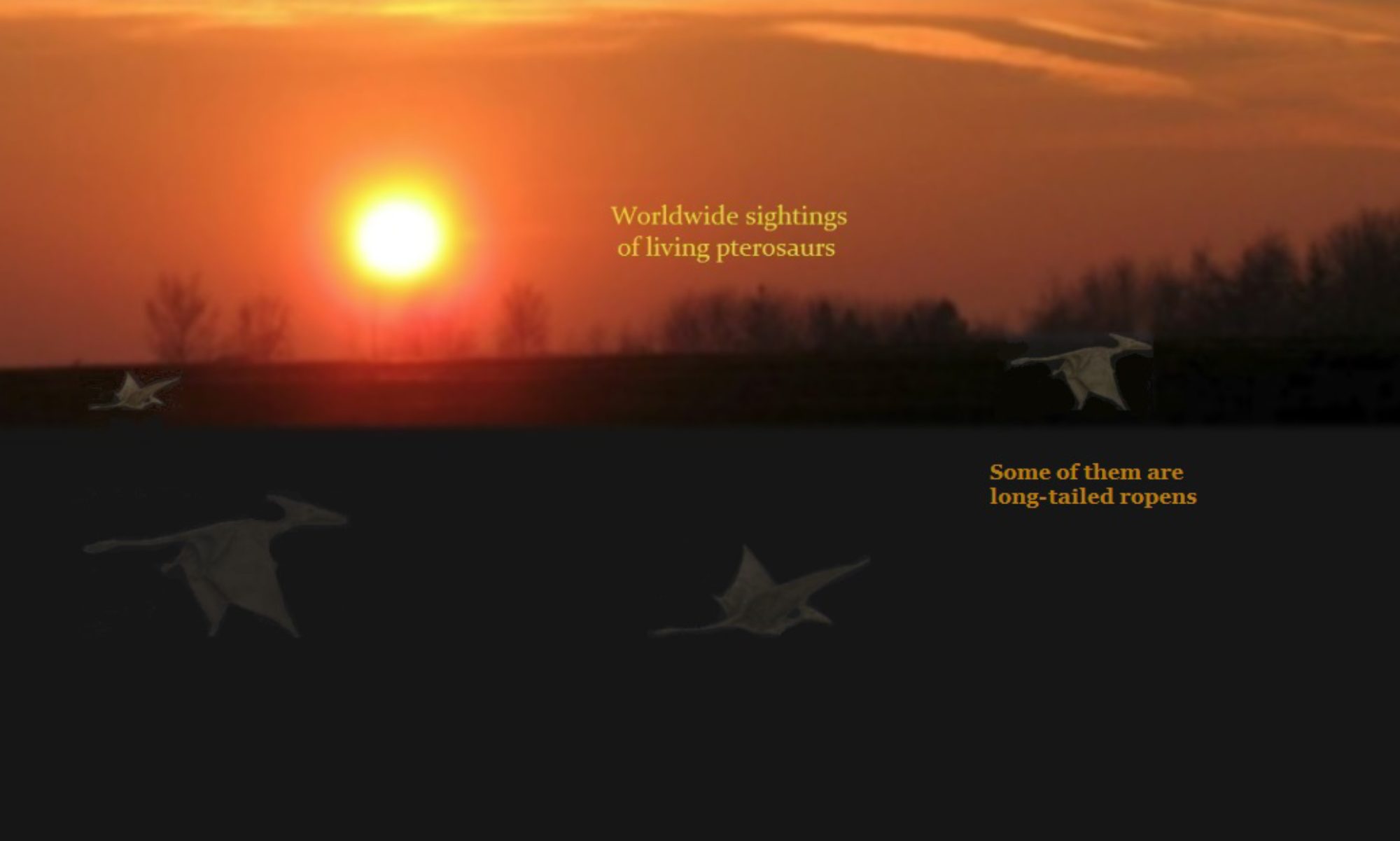I am fascinated by another report of what seem to be pterosaurs in the United States. According to the nonfiction book Live Pterosaurs in America, a man in Florida saw, in 2008, at about 2:30 a.m., two small pterosaurs flying over houses in the neighborhood. The man’s friend also saw the creatures that had no feathers, a pointed beak, and a “long pointed thing protruding from the back of its head.” The man making the report also said, “We were not drinking or on drugs.”
For a lone eyewitness, a testimony of observing a living pterosaur at 2:30 a.m. might be dismissed as a dream; but two eyewitnesses would not both dream a pterosaur and than both forget waking up. In addition, this night involved two flying creatures, not one. The second apparent pterosaur appeared soon after the first one and flew in another direction. This looks to me like a solid testimony, giving credence to the idea that these two men saw two modern pterosaurs.
But this Florida sighting may be related to other encounters in the Southeast. The sightings as a whole make an accumulated case for the possibility of modern living pterosaurs.
I know that Georgia seems a bit off topic, but the eyewitness in Winder, Georgia, also had two sightings, although they were separated by days, rather than by seconds in the Florida case. I’ll quote from the web page in question:
The sightings were just this past summer (2008). From the drawings the lady sent to me, I am calling this apparent pterosaur “Hammerhead Ropen.” The head appendage is somewhat similar to that of the creatures seen by Hodgkinson and Hennessy; but the beak and the appendage seem more like one continuous head-structure. The head-appendage has a somewhat curved shape. Both beak and head-appendage are more blunt than is in the sketches of the Hodgkinson-Hennessy creatures.
I don’t say that the Georgia creatures were of the same species as the Florida ones. The size difference is great. But there may be some relationship, for the environment is similar and the descriptions both strongly suggest a Rhamphorhynchoid pterosaur.


